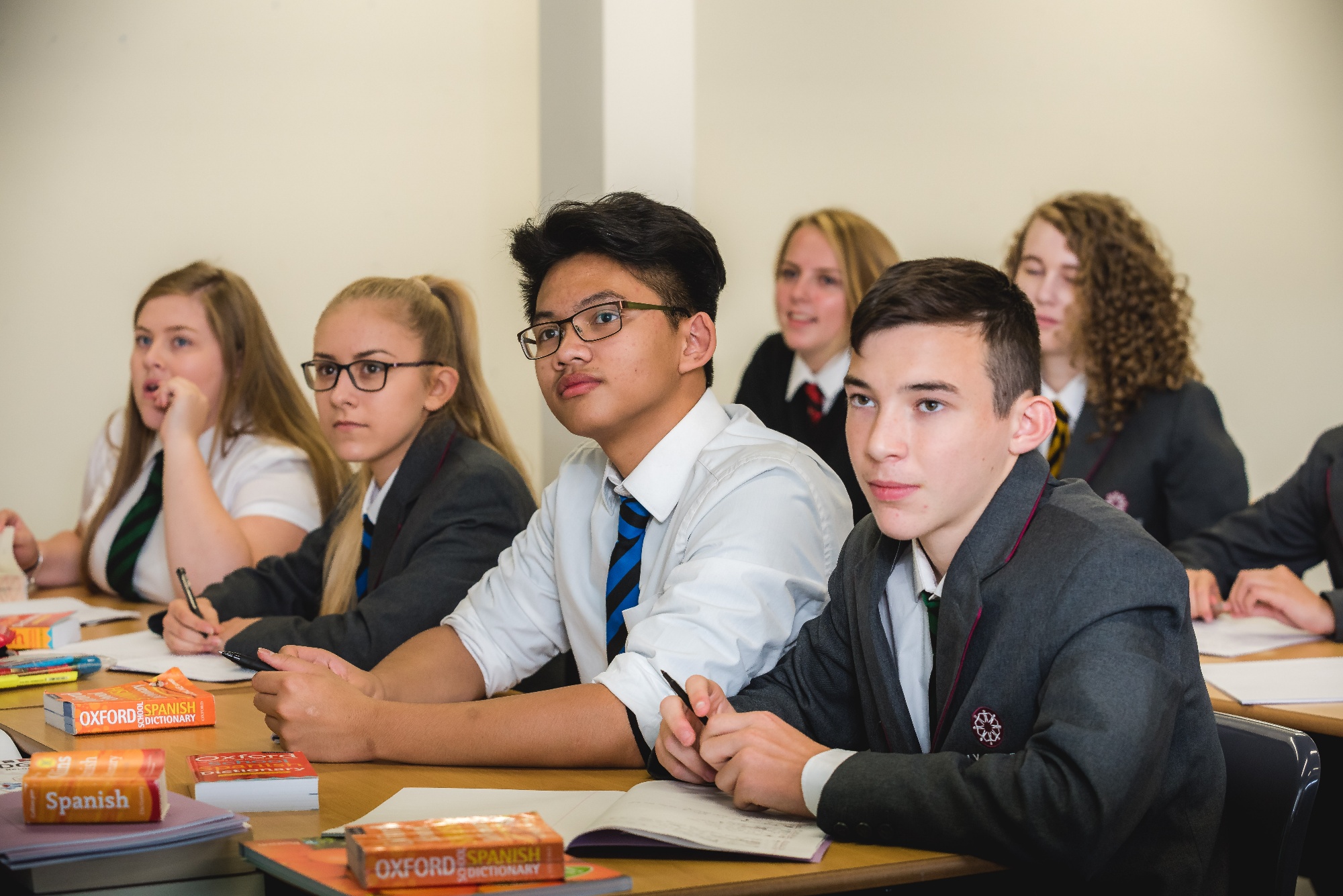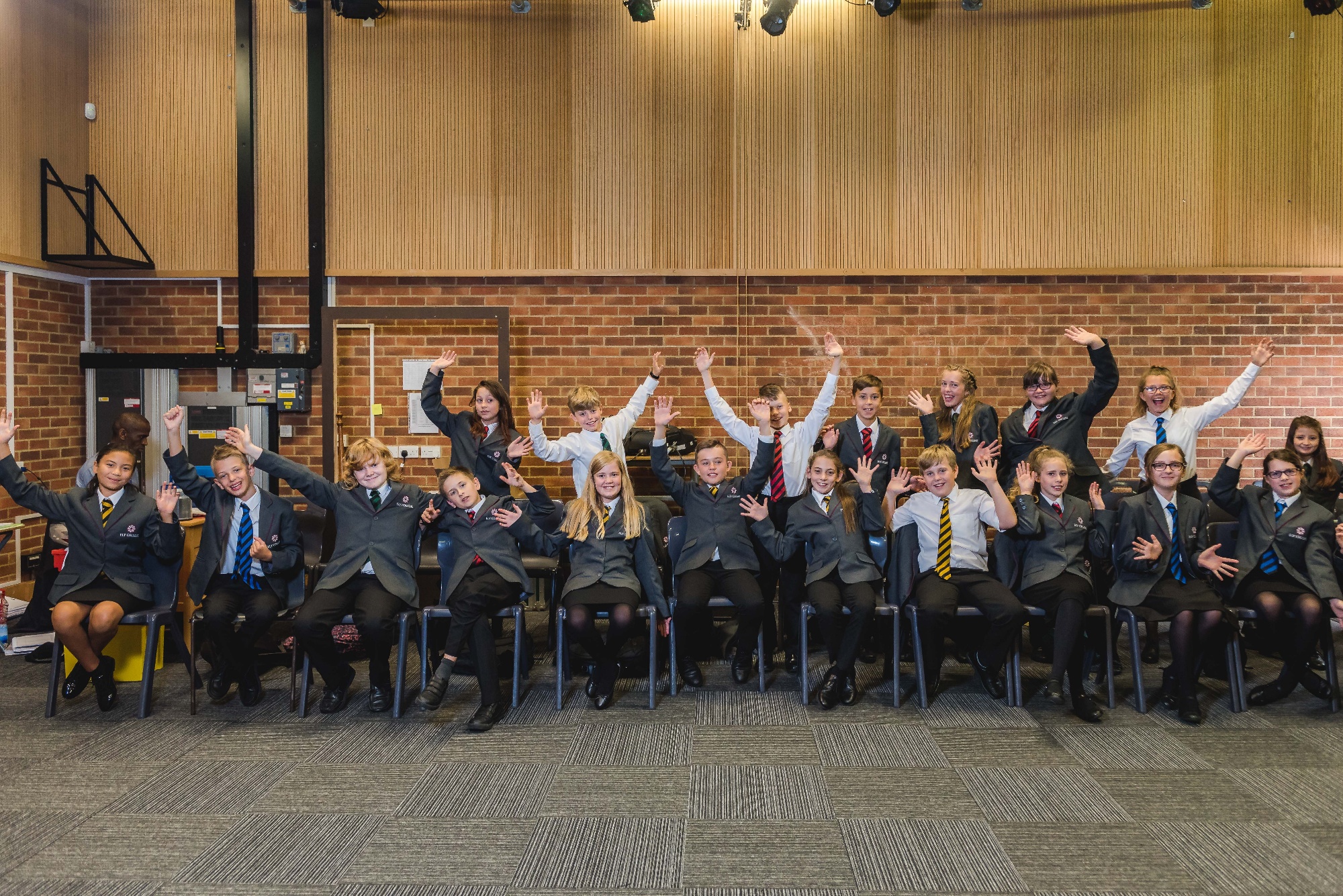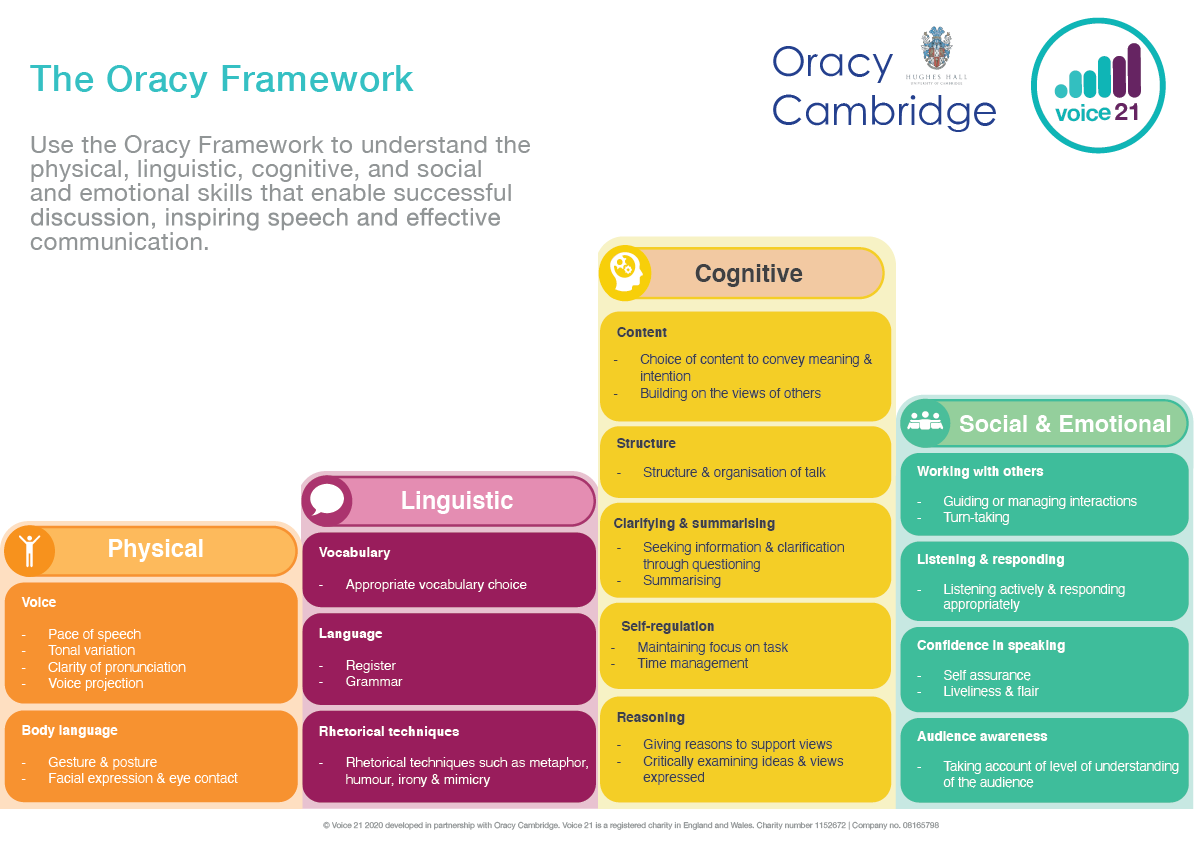Oracy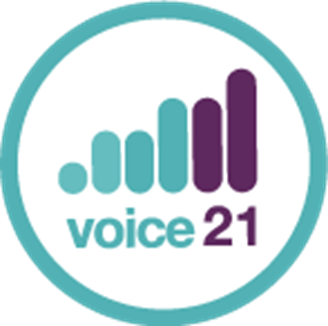
Oracy is the ability to articulate ideas, develop understanding and engage with others through spoken language. There is a clear link between oracy and the enacted curriculum: to articulate, understand and contemplate the subject, we must be able to speak it. Promoting high quality talk is at the heart of explicit teaching. Our aim is to ensure all students receive an explicit oracy education at Ely College.
Voice 21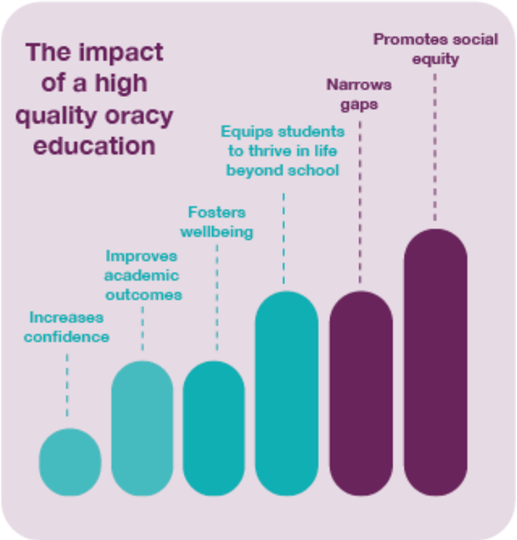
Voice 21 is the UK’s oracy education charity. They work with schools to transform the learning and life chances of young people through talk, and campaign for oracy to have a higher status in the education system.
Ely College has been working with Voice 21 since September 2021 as a partner school. Our Oracy Champions are:
Sam Rasmussen Stuart Patman Sam Manning
The Oracy Framework
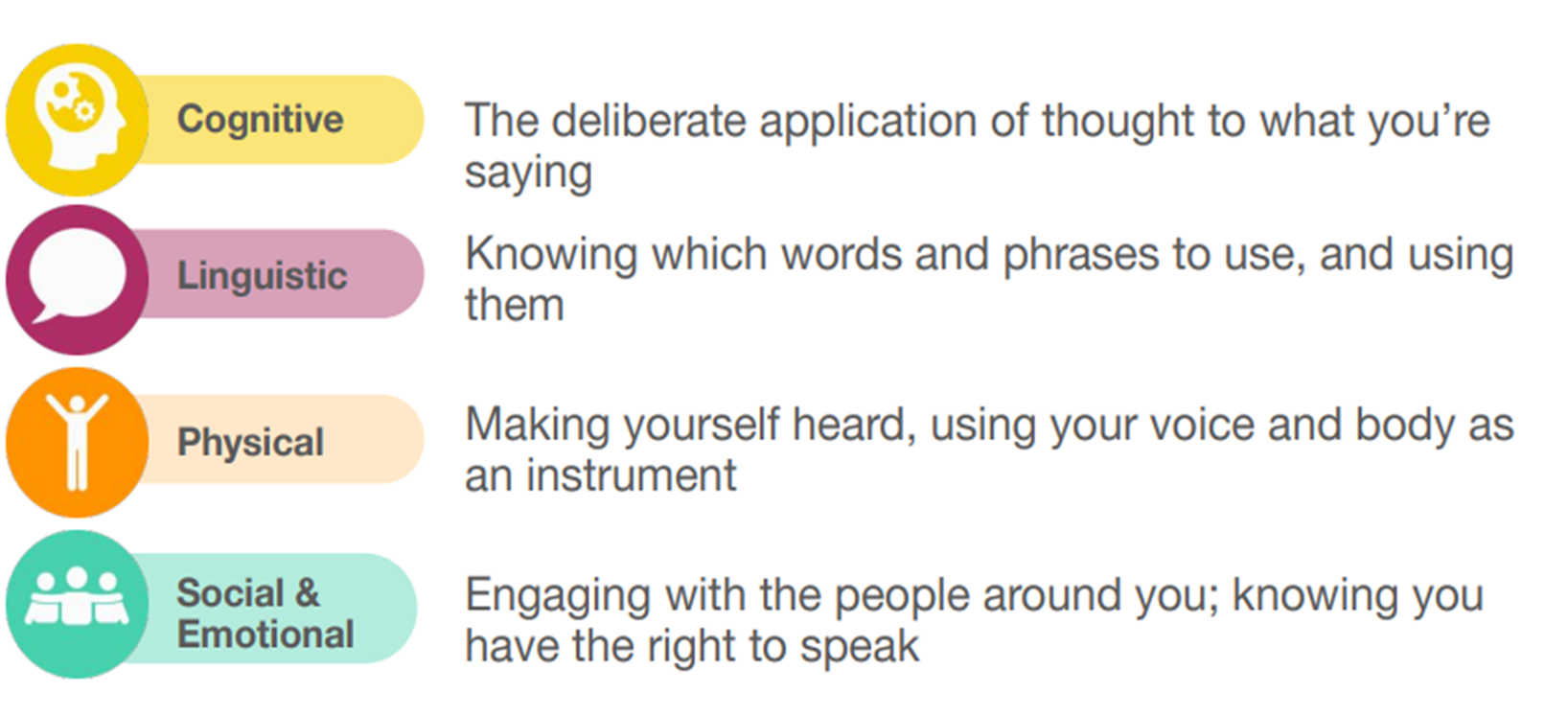
Vision for Oracy at Ely College
All students at Ely College participate in regular high-quality oracy experiences that build their communication and listening skills, and develop them into confident and articulate adults who can succeed in life
Oracy Training for Staff
All teaching staff have received training using Voice 21 expert resources on the different ways to embed oracy successfully in their subjects.
A growing number of staff are also learning how to adapt Oracy opportunities to meet the needs of students with special education needs or English as an Additional Language challenges.
Many staff have also done specific training with Voice 21 on using oracy in their subject areas, as a Tutor or outside the classroom through whole-school opportunities.
Oracy in the Curriculum
Each student in Year 7-13 can expect to take part in a minimum of one planned oracy activity in each of their subjects every half-term
Each session is between 20mins-60mins long and is explicitly planned to develop a students’ Oracy skills and experience alongside subject knowledge
Each department has a clear oracy map showing the program of oracy for each year group
Oracy Outside the Classroom
We are aiming to develop student oracy skills further through opportunities outside the classroom. These include:

